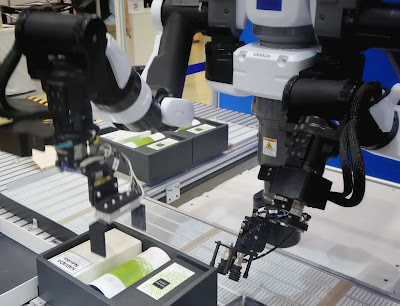Germany is well renowned for being a manufacturing and engineering powerhouse on the international stage. The nation is also making progress in the field of data analytics and using it to spur economic innovation.
Key Points:
- Germany is transforming its economy and gaining a competitive edge through data.
- The nation is making investments in digital infrastructure and putting rules into place to encourage the use of data in a number of industries.
- Germany is using data to generate new products and services, increase customer experiences, and boost industrial processes.
- Germany is able to improve its energy use and lower greenhouse gas emissions because of the use of data.
- In order to promote innovation and boost economic growth, the nation is encouraging cooperation between enterprises, academic institutions, and the government.
- Germany's data-driven strategy has the potential to boost its position as a global leader in technology and innovation, attract investment, and generate new jobs.
The significance of data and its potential to revolutionize sectors have been acknowledged by the German government. The "Data Strategy for Germany" was introduced in 2018, outlining a vision for a data-driven economy. The goal of the plan was to foster the accessibility, value, and utility of data in Germany and to foster an atmosphere that encourages innovation and development.
The establishment of the "Data Innovation Alliance" is one of the strategy's main efforts. Industry, academia and the government collaborate in this public-private collaboration to cooperate on data-driven projects. The Alliance seeks to encourage the use of data across all economic sectors and to hasten the development and implementation of data-driven solutions.
The "National Platform for Artificial Intelligence" is another initiative. On this platform, experts from business, academia, and government collaborate to create strategies for applying AI to the German economy. The platform wants to encourage the advancement of AI technologies and guarantee that they are applied in an honest and ethical manner.
Germany is spending a lot of money on new data-driven technology research and development in addition to current projects. For the advancement of AI, machine learning, and other data-driven technologies, the German government has set aside billions of dollars. This investment aims to keep Germany at the forefront of technological advancement and enable it to compete on the international stage.
Manufacturing is one sector in Germany that is gaining from data use. The utilization of data is fostering innovation in the industrial industry, which has long been a strength of Germany. Data analytics, for instance, is used to streamline production procedures, cut waste, and enhance quality assurance. Greater productivity and efficiency are the results, which support the competitiveness of German firms.
Healthcare is another industry reaping the rewards of data use. In order to enhance patient outcomes and save healthcare expenditures, Germany is utilizing data analytics. Data is utilized, for instance, to create patient treatment programs that are individualized and catered to their particular need. This is assisting in enhancing the efficacy of treatments and lowering the demand for expensive interventions.
In conclusion, Germany is transforming its economy through the use of data. The German government is making significant investments in the study and creation of new technologies as a result of its recognition of the potential of data. The National Platform for Artificial Intelligence and the Data Innovation Alliance are just two examples of how the government is encouraging the use of data in business.
Data utilization in healthcare and manufacturing is promoting innovation and enhancing results. Germany is thus well positioned to maintain its position at the forefront of technological advancement and to compete in the world arena.




_11zon.png)

No comments:
Post a Comment